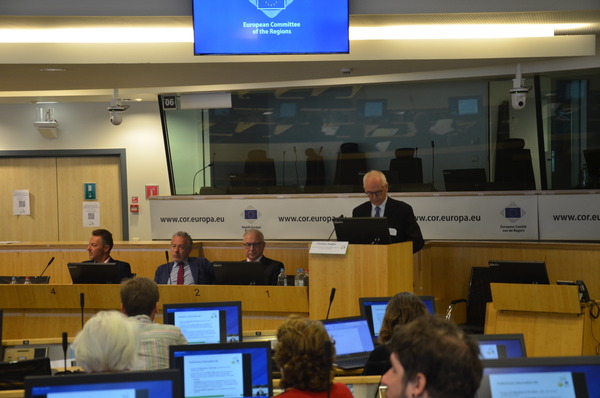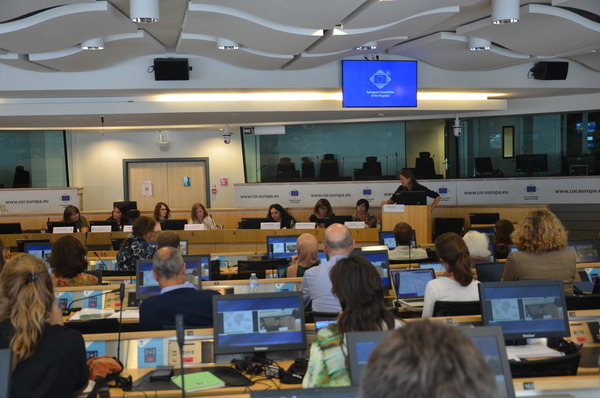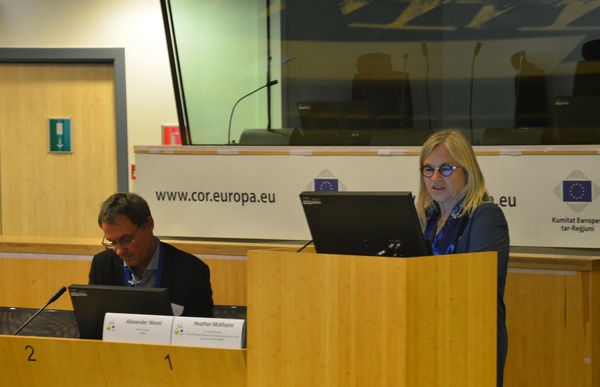Why focus on Agroecology transition?
Today, our agricultural and food systems are facing multiple challenges, including climate change, loss of biodiversity, dwindling resources, degradation of soil and water quality. Agroecology can strengthen the sustainability and resilience of farming systems and thus contribute to addressing these challenges.
At the European level, both the European Commission and the Committee of the Regions recognize the pivotal role that agroecology can play in supporting key policies such as the Green Deal. Roberto Berutti, a Member of the Cabinet for Agriculture Commissioner Janusz Wojciechowski and a keynote speaker at the conference, highlighted the significance of Living Labs in not only achieving but surpassing environmental, climate, farming, and biodiversity policy objectives.
"The upcoming European partnership on agroecology is an excellent step in the right direction, but undoubtedly it will only be a start. Long term political and financial investment is needed to make the necessary changes." Heather Mckhann
How can Living Labs and Research Infrastructures contribute to the Agroecology transition?
Putting agroecology into practice involves learning through experimentation with trials and errors.
Agroecology requires adaptive management and collaboration among scientists, practitioners, policymakers, and consumers, therefore Living Labs and Research Infrastructures are at the core of facilitating agroecology transition. Heather McKhann (INRAE), coordinator of the ALL-Ready project, highlighted the significance of diversity in establishing resilient systems and achieving ultimate success. This diversity encompasses various actors, including land and infrastructure owners, communities, authorities, and researchers, who should collaborate in a transdisciplinary manner. Moreover, diversity extends to biodiversity, farming systems, and the composition of living labs and other open innovation networks.
Insights from Living Labs and Research Infrastructures in several European nations have highlighted the significance of sharing know-how and best practices. These experiences have revealed a diverse range of local activities, including seed swaps, local farmers' markets, soil health workshops, the establishment of alternative food systems, and engagement with farmers across various stages, from participatory research to policymaking.
How can local and regional authorities support Agroecology Living Labs and Research Infrastructures?
Agroecology has a strong regional dimension because there is no one-size-fits-all approach to agroecological practices. Heinz-Joachim Höfer, from the European Committee of the Regions, emphasized the pivotal role of regions in enhancing agricultural sustainability and resilience, highlighting the necessity of regulatory changes and increased agricultural knowledge for this transition.
Participants in the final panel reached a consensus that robust policy stimulation is vital for coherent regulations. Additionally, adequate funding and other forms of assistance are needed at local, regional, and national levels to support sustainable agri-food systems.
The way forward - European Partnership on Agroecology Living Labs and Research Infrastructures
Both ALL-Ready and AE4EU play a significant role in shaping the forthcoming European Partnership on Agroecology Living Labs and Research Infrastructures, launching in early 2024 under Horizon Europe. This partnership aims to accelerate the transition to agroecology across Europe by supporting a network of living labs and research infrastructures.
Nicolas Tinois, the coordinator of the partnership, emphasized the overarching mission of the partnership, which is to achieve significant scientific, social, and economic impact through an approach involving both short-term and long-term objectives.
To make agroecology a reality a revolutionary transition is needed, emphasized Alexander Wezel (ISARA), coordinator of the AE4EU project.
ALL-Ready and AE4EU have received funding from the European Union’s Horizon 2020 research and innovation programme under grant agreements No101000349 and No101000478. Views and opinions expressed are however those of the author(s) only and do not necessarily reflect those of the European Union, European Commission or European Research Executive Agency (REA). Neither the European Union nor any other granting authority can be held responsible for them.
More Information
- Dr. Heather McKhann, coordinator ALL-Ready, INRAE, heather.mckhann(at)inrae.fr
- Dr. Alexander Wezel, coordinator AE4EU, ISARA, awezel(at)isara.fr
- ae4eu.eu: Agroecology for Europe
- research-and-innovation.ec.europa.eu: European R&I partnership on agroecology living labs and research infrastructures






 tap and then scroll down to the Add to Home Screen command.
tap and then scroll down to the Add to Home Screen command.